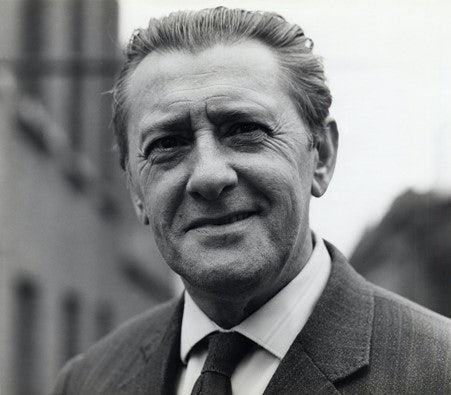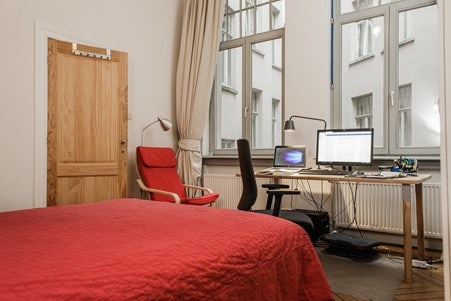‘When an author jumps in at the deep end, I really want to jump in with them'
Translator Miriam Boolsen spent nearly all of October 2021 at the Translators’ House in Antwerp. 'The timing was perfect,' she says. 'And not just because it allowed me to get away while my own home was being renovated. It meant I could really throw myself into the translation of Louis Paul Boon’s ‘De Kapellekensbaan’.'
Going somewhere
'Earlier I had translated the – very small – oeuvre of the Dutch author Nescio. In Boon I was dealing with another writer with an exceptional and unique approach to language and the potential of the written word – exploring the limits of what literature may and can and dares to do.
I want to hear a voice, I want to know who’s talking to me.Miriam Boolsen
As a translator, I like it when a writer has something to say, but more than that I like them to have their very own way of speaking; I want to hear a voice, I want to know who’s talking to me. I don’t care if that voice is lying – to me or to themselves – and it doesn’t matter whether that voice is contradictory, is deceiving me or themselves and whether there is a single style or multiple ones. What I want is for someone to be daring, for an author to have the audacity to jump – because I love to jump in there with them.

Boon has that audacity. Every line, every page is another leap in the dark and who knows where you might end up. While I was working on the translation, every day was unpredictable. I didn’t know where we were headed, but I knew we were going somewhere, Boon and I.'
The art of simplicity
‘A classic that many are scared of – that’s how I’d characterise 'De Kapellekensbaan’. I spoke to several people about the book. “Oh yes, very well-known,” they said, “never read it.” They were afraid it was a dense, difficult book, because why else would it be so famous?
The opposite is true. Boon tried to make the inaccessible accessible again, to make something big and confusing small and simple instead. I think that’s the most beautiful thing you can aspire to as a writer. Anyone can write something that’s hard to comprehend; it doesn’t take much talent. But writing something that almost everybody can understand: that takes real skill.
Boon’s texts are very tongue in cheek: the heavier the topic, the lighter his touch. It may look straightforward, but the road is littered with fireworks that could explode at any time. One moment you’re soothed, the next you’re shaken up, but as a reader you’re always level with the author. He doesn’t pretend to be dumber or smarter, better or worse than he really is, and that’s what keeps it human.'

Incomprehensible dialect
'Boon, or boontje as the writer calls himself in the book, made frequent use of Flemish dialect. That can be challenging for a translator, as many of those words have now passed into oblivion. My stay in Antwerp gave me the chance to get stuck into that challenge. The internet often failed to deliver, so it was even more important for me to be able to check with Flemish people. While they didn’t always have an answer, those conversations helped clarify a great deal. And it was certainly reassuring for me, as the translator, to know that I wasn’t the only one who was mystified.
I obviously didn’t spend the entire month in Antwerp just sitting at my desk, working. It goes without saying that I also spent time strolling around town, thinking, seeing friends, meeting new people, talking to colleagues. I went to concerts and the theatre, and De Leesclub organised a reading of my own theatre texts ‘SHOOT SNOW WHITE’ and ‘JUST A LITTLE BIT MORE OF THAT EVERLASTING LOVE’. But above all, a stay at the Vertalershuis is a chance to focus on work, to really get into it, to give yourself fully to somebody else’s world. And it’s all the more enjoyable and exciting when that person is really able to create a world of their own, not just in the story but through the language itself.